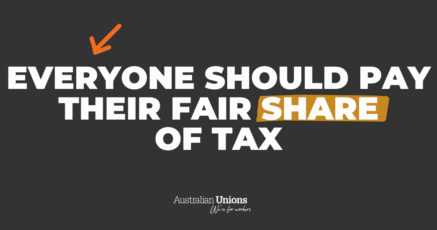If 2022 was the year of ‘quiet quitting’, then 2023 is shaping up to be about ‘quiet hiring’.
Quiet quitting was the trend of workers taking a stance against expectations of going ‘above and beyond’ at work and establishing a healthy work-life balance instead.
Quiet hiring is the opposite. It’s when an employer notices that you’re doing well and putting in extra unpaid effort in your job. So, they decide to give you even more work.
The great resignation apparently left some employers struggling to fill job vacancies. But rather than offer high wages or improve workplace environments to attract employees, they’re using quiet hiring to fill in the gaps.
Instead of hiring new employees, large companies sneakily dump current staff with more tasks and responsibilities.
It could be wage theft
If more work for the same pay sounds dodgy to you, that’s because it is.
If you work on an hourly wage, any requests for overtime must be reasonable. And if your employer is expecting you to work overtime, check your Award or enterprise agreement for when overtime applies and how much you will get paid.
For salaried workers, overtime rules tend not to apply. However, that doesn’t mean your employer can just dump you with 50 plus hour work weeks.
Union members working at NAB have been calling out that kind of toxic behaviour for over two years. One NAB employee said their, “mental health deteriorated significantly. My programme manager joked about nearly working me to death.”
Other workers described how their family lives fell apart, they developed severe depression or even experienced incidents of literally doing work tasks while sleepwalking at night.
Even though overtime may be expected of salaried workers, it shouldn’t be to such an extent that workers are being pushed to mental breakdown. Your employer has a legal obligation to provide a safe and healthy work environment.
Either way, when your boss wants you to do tasks that go beyond the description in your employment contract, then you may need to be on a higher classification.
Your classification is how Awards or agreements determine how much you are paid according to your duties, skills and qualifications.
If you are being kept on the same classification but are expected to do the role of a higher classification, then you are experiencing wage theft.
But what counts as reasonable overtime? How do you figure out your classification? These kinds of questions will have different answers depending on the industry and workplace, so contact your union for information tailored to you.
The just-as-dodgy alternative
Sometimes, instead of getting the employee to overstretch their workload, a large company will outsource the work. But then pay the new worker less.
They do this through labour hire. A labour hire worker is someone who is employed by a company who is then contracted by another company to provide workers.
In other words, a labour hire worker works for a company without being employed directly by that company.
Because the company is not responsible for the practices of the labour hire company, the labour hire worker is often stuck on lower wages than the directly employed worker standing next to them.
A local example is Qantas who illegally dealt with workers demanding better protection from COVID by sacking them and outsourcing their jobs to labour hire workers.
The labour hire workers have also suffered. Workers know that one of the reasons for hiring them is so multimillionaires like Qantas CEO Alan Joyce can keep conditions poor and wages low.
If you’re a labour hire worker, reach out to your union for help and information or join if you haven’t already.
Your union membership ensures you have support if or when you need it. We stand together whenever members want help, but the course of action we take is entirely up to you.






SHARE:
Quiet hiring and other ways you could be missing out on pay